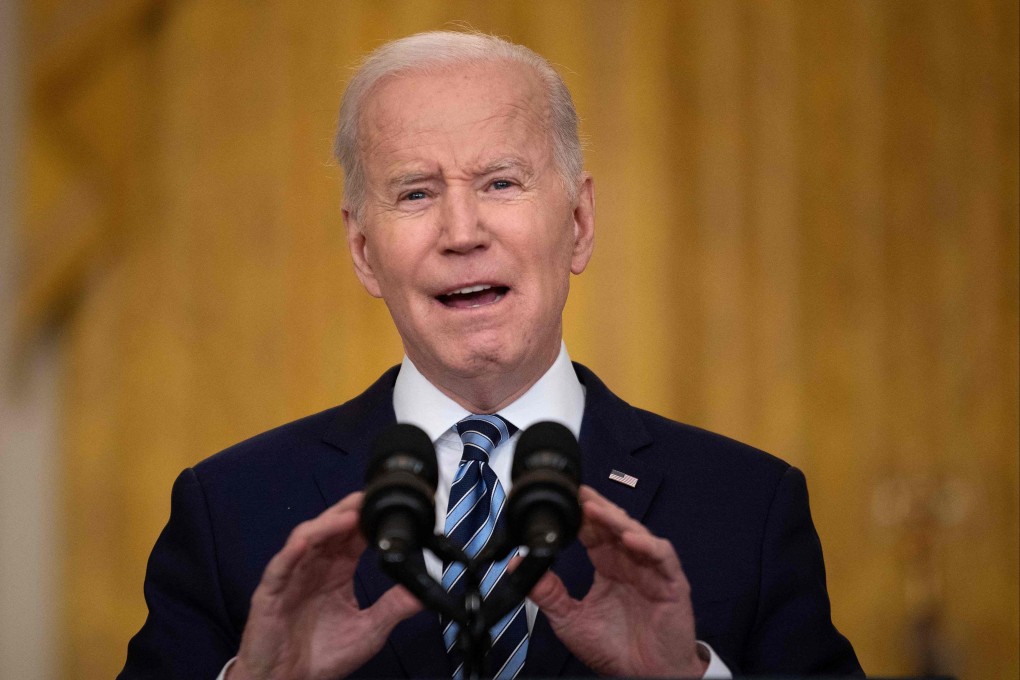Advertisement
Ukraine: ‘Putin chose this war,’ Biden says, outlining measures US plans against Russian assets
- Washington will freeze all Russian assets in the US, restrict technology exports and sanction the Russian president and the oligarchs who back him
- White House says Biden would be open to a call with China’s President Xi Jinping
Reading Time:4 minutes
Why you can trust SCMP
99+

In response to the invasion of Ukraine, US President Joe Biden pledged on Thursday to freeze all Russian assets held in the United States, starve the Russian economy of vital Western technologies and pile on sanctions against Russian President Vladimir Putin and the oligarchs who back him.
In a multipronged assault that started shortly before dawn, Russian forces launched more than 100 missiles at targets that included airfields and ammunition depots across the nation of 44 million people.
“Putin is the aggressor. Putin chose this war and now he and his country will bear the consequences,” Biden said in his first public remarks since the invasion was launched.
Advertisement
“Putin’s aggression against Ukraine will end up costing Russia dearly, economically and strategically. We will make sure that Putin will be a pariah on the international stage.”
Biden said that US allies and partners were more unified than ever in standing up against and countering the “premeditated attack”.
Advertisement
Advertisement
Select Voice
Choose your listening speed
Get through articles 2x faster
1.25x
250 WPM
Slow
Average
Fast
1.25x
